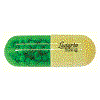 Pill Categories
Pill Categories
Minocin
 |
Minocin is a tetracycline antibiotic that is used to treat many different kinds of infection including severe acne. |
PRODUCT DESCRIPTION, SAFETY, ETC View product image
Minocin 100 mg
| Package | Price | Per pill | Save | Order |
|---|---|---|---|---|
| 120 pills - 100 mg | €240.25 | €2.01 | €73.16 |  |
| 90 pills - 100 mg | €187.70 | €2.08 | €47.36 |  |
| 60 pills - 100 mg | €137.39 | €2.29 | €19.31 |  |
| 30 pills - 100 mg | €78.35 | €2.61 | — |  |
Minocin 50 mg

PRODUCT DESCRIPTION
Drug Name
Minocin (Minocycline)
Drug Uses
Minocin is a tetracycline antibiotic that is used to treat infections caused by certain bacteria including Anthrax, Cholera, Gonorrhea (when penicillin cannot be given), Urinary tract infections and rectal infections.
How it is taken
Certain brands of Minocin can be taken by mouth with whilst others need to be taken without food. Take it with a full glass of water and swallow it whole without crushing, breaking or chewing it. (Some brands only)
The best way to use the drug is as recommended by your doctor.
Take it for the entire duration of treatment preferably at the same time everyday. Do not stop without consulting your doctor.
Do not take any bismuth salts (eg, bismuth subsalicylate), calcium salts (eg, calcium carbonate), colestipol, iron salts (eg, iron sulfate), magnesium, urinary alkalinizers (eg, daily antacids), sucralfate, vitamins/minerals, quinapril, didanosine, or zinc salts (eg, zinc sulfate) for at least a 2 hour duration of using Minocin.
Drug Class & Mechanism
Minocin is a tetracycline antibiotic that works by slowing down the growth of certain bacteria. This allows the immune system to kill the bacteria.
Missed Dosage
If you miss a dose of Minocin then you may take it as soon as you remember and adjust the remaining doses accordingly. However, if it is nearly time for the next dose then you may skip this dose and continue with the regular dosage. Do not take a double dose to make up for the missed dose.
Storage
Store it at room temperature (between 68 and 77 degrees F (20 and 25 degrees C) in an air tight container protecting it from direct exposure to light, heat and moisture. Keep away from pets and children.
Warnings/Precautions
Discuss with your doctor about any prior medical condition that you may have including allergies to medicines, food or other substances, have kidney problems, have an autoimmune disorder (eg, lupus).
You must not take if you are allergic to any ingredient in it or taking acitretin, an aluminum salt (e.g., aluminum carbonate), isotretinoin, methoxyflurane, or a penicillin.
If you are pregnant or suspect that you are, then stop using Minocin and contact your doctor immediately.
It is unknown whether Minocin is secreted in breast milk. Avoid breast feeding while using the drug.
Certain drugs can interact with Minocin and hence, mention clearly to your doctor or pharmacist all medicines, dietary supplements and herbal prescriptions that you are taking especially one of the following.
Aluminum salts (eg, aluminum carbonate) or cimetidine because they decrease the effectiveness of the drug.
Acitretin, anticoagulants (eg, warfarin), digoxin, ergot alkaloids (eg, ergotamine), insulin, isotretinoin, methotrexate, methoxyflurane, or theophyllines, because Minocin increases the chances of experiencing their side effects.
Live oral typhoid vaccine, oral contraceptives (birth control pills), or penicillins because Minocin decreases their effectiveness.
Possible Side Effects
Some of the common side effects of are dizziness, drowsiness, lightheadedness, loss of appetite, nausea, stomach upset, vomiting. Please contact your doctor if the symptoms persist or become bothersome.
Other severe side effects include severe allergic reactions (rash, hives, itching, difficulty breathing, tightness in the chest, swelling of the mouth, face, lips, or tongue), bloody stools, blurred vision, bulging soft spots in infants, fever, headache, increased pressure in the head, inflammation of the pancreas (increased pulse, nausea, stomach tenderness, vomiting), joint pain, muscle pain or weakness, red, swollen, blistered, or peeling skin, ringing in the ears, seizures, severe diarrhea, severe skin reaction to the sun, stomach pain/cramps, trouble swallowing, unusual tiredness or weakness, vaginal irritation or discharge, yellowing of the skin or eyes.
You must seek medical attention immediately if any of these side effects occur.
| Home Contact us Delivery Control Discounts Sitemap | Terms of service | Money back policy | Privacy policy |








 Live Chat 24/7
Live Chat 24/7





